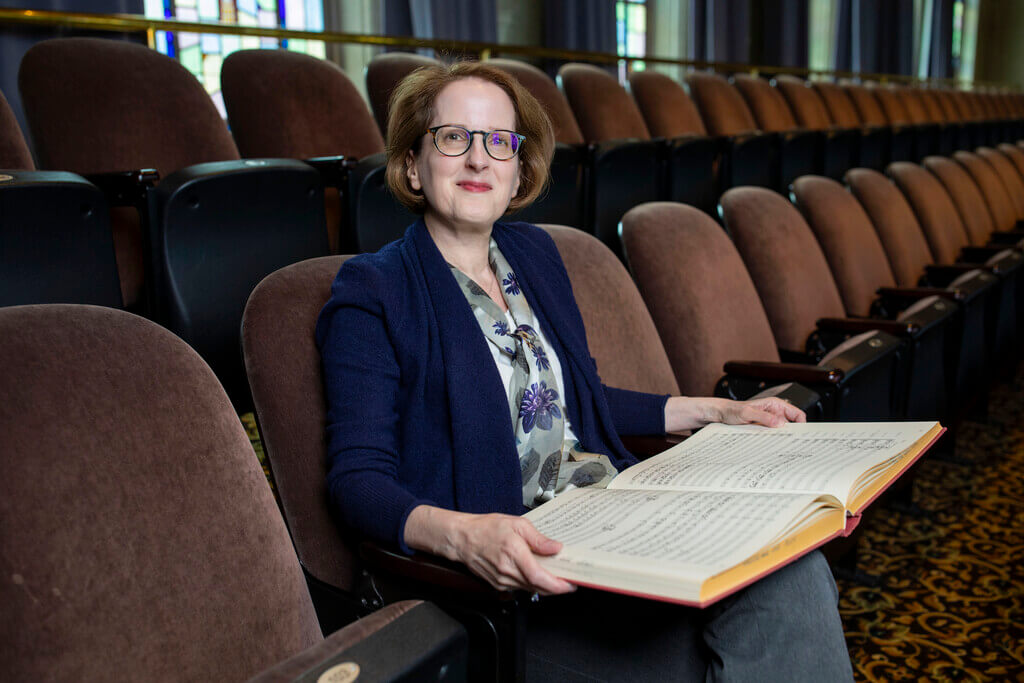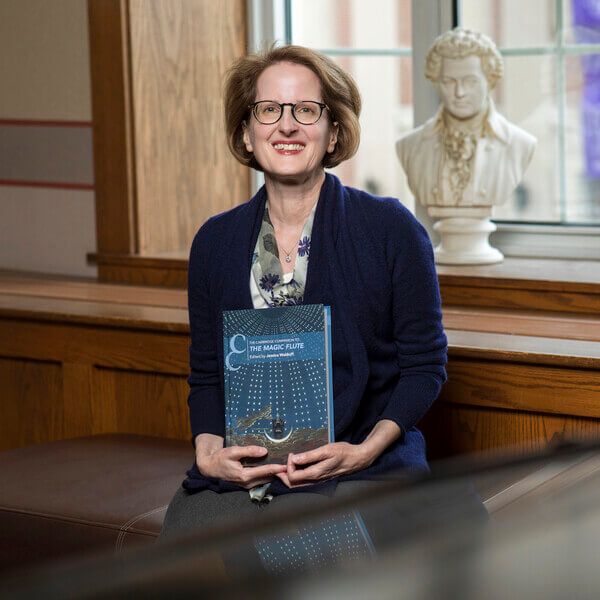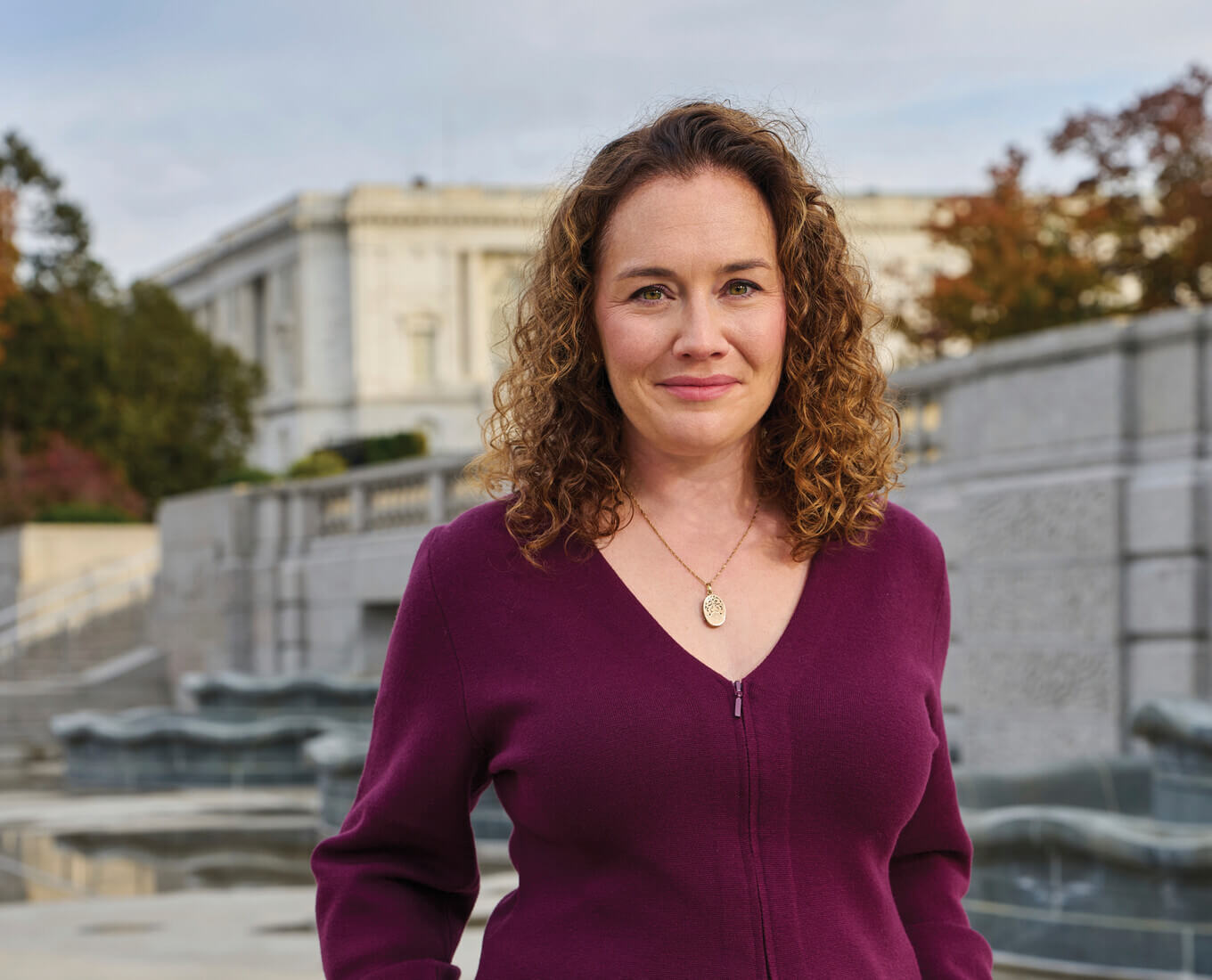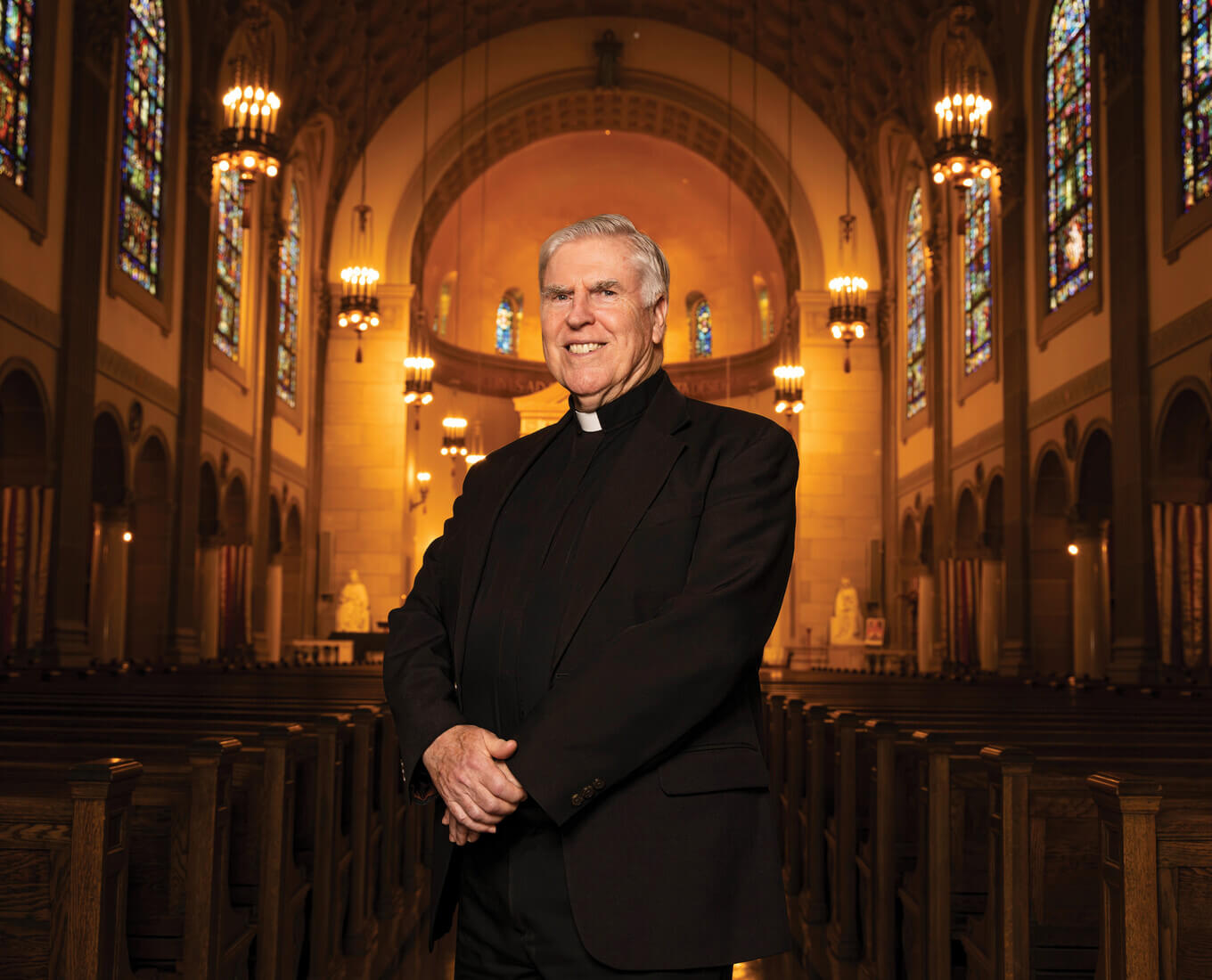Professor of music Jessica Waldoff started playing the violin at age 7. She was familiar with Wolfgang Amadeus Mozart from her first lessons and music playing in her parents’ home, but did not truly fall under the composer’s spell until her mother’s friend took her to see the now classic 1975 Ingmar Bergman film of Mozart’s “The Magic Flute.”
“I was completely enchanted by it,” she said. “I wanted to know more.”
That hunger has been a driving force in Waldoff’s career. A 29-year member of the Holy Cross faculty, she edited “The Cambridge Companion to The Magic Flute,” which was briefly ranked as a No. 1 bestseller on Amazon’s New Music List and received a stellar review in classical music magazine Gramophone.
“About eight years ago, the music editor at Cambridge University Press asked if I would put together a Cambridge Companion to ‘The Magic Flute,’” Waldoff said. “It was perhaps the biggest honor of my professional life — I was really floored.”
Humbling as the opportunity was, it is perhaps no surprise that the publisher approached Waldoff: She’s been studying and writing about “The Magic Flute” for decades.
“I have a stronger relationship with this work than with anything else I've written about,” she said. “I gave my first conference paper on ‘The Magic Flute’ while I was still a student at Cornell, and it won a prize from the American Society for Eighteenth-Century Studies. My first scholarly essay published in a journal was on ‘The Magic Flute.’ I began thinking about this opera a long time ago and I keep returning to it.”
Waldoff is not alone in her devotion to “The Magic Flute,” Mozart’s 1791 opera with a libretto written by Emanuel Schikaneder. Still one of the most frequently performed operas worldwide today, more than 200 years after its premiere, “The Magic Flute” features a fantastical setting, heroic adventures and mystical characters.
“It has something for everyone, and that was what Schikaneder and Mozart were striving for,” Waldoff said. “Opera was a very competitive marketplace, a bit like Broadway today. This was Mozart’s first piece for Schikaneder’s state-of-the-art suburban theater. They were trying to create something new with broad appeal – this opera is a fairy tale, but it is also a comedy and a political allegory; it’s got pathos, drama, spectacle, and, of course, extraordinary music that only Mozart could write. They created something magical for everyone – anyone – who wanted to attend.”

Across her years of study, Waldoff points to one anecdote that illustrates the opera’s universal appeal: “Shortly after the opera’s premiere, Mozart took an unusual group of family members and friends to see it together: his 7-year-old son, Carl; his mother-in-law; his brother-in-law (husband of the singer who played the opera’s main villain, the Queen of the Night); his friend and rival, Antonio Salieri; and Salieri’s mistress, Caterina Cavalieri, who sang in operas by Mozart and Salieri.
“The next day Mozart writes to his wife Constanze (who was out of town), bursting with enthusiasm: The musicians listened with ‘great attention’ and shouted ‘bravo’; ‘Carl was so delighted.’ I love this image of Mozart enjoying his opera with friends and family," she continued. "It says something extraordinary about this work that his 7-year-old son and his distinguished musician colleagues all loved it, coming to it from different places.”
A labor of love
Recognizing the broad appeal of the opera, scholars, too, have long approached “The Magic Flute” from varying musical and cultural contexts. “The Cambridge Companion to ‘The Magic Flute” features 21 essays by leading scholars organized into four sections — historical context, musical analysis, critical approaches and reception. Creating this new critical guide required Waldoff to think about “The Magic Flute” in today’s world and to find ways of differentiating her book from others.
Among English-language books on the work, “one of the most important is Peter Branscombe’s ‘Cambridge Opera Handbook’ published in 1991,” Waldoff said. “It’s a brilliant book, but there are issues it doesn't really address, such as the representation of women, race and exoticism. In the intervening years, these issues have become increasingly important for thinking about the opera and mounting productions.”
These aspects of “The Magic Flute,” Waldoff said, “have to be a part of the conversation. Schikaneder and Mozart are writing about a conflict of magical worlds at a time when the real world is embroiled in conflict and revolution. The opera pits light against darkness, love against hate, truth against falsehood, and women against men. How should we feel about the fact that the villain of this work is a woman (the queen), or that a Black character (Monostatos) is not treated very well? We have to find a way to talk about these things and not look the other way.”
It was also Waldoff’s hope that creating such a robust book would mean that everyone — from music students to aficionados — would find something to appreciate and learn in it.


